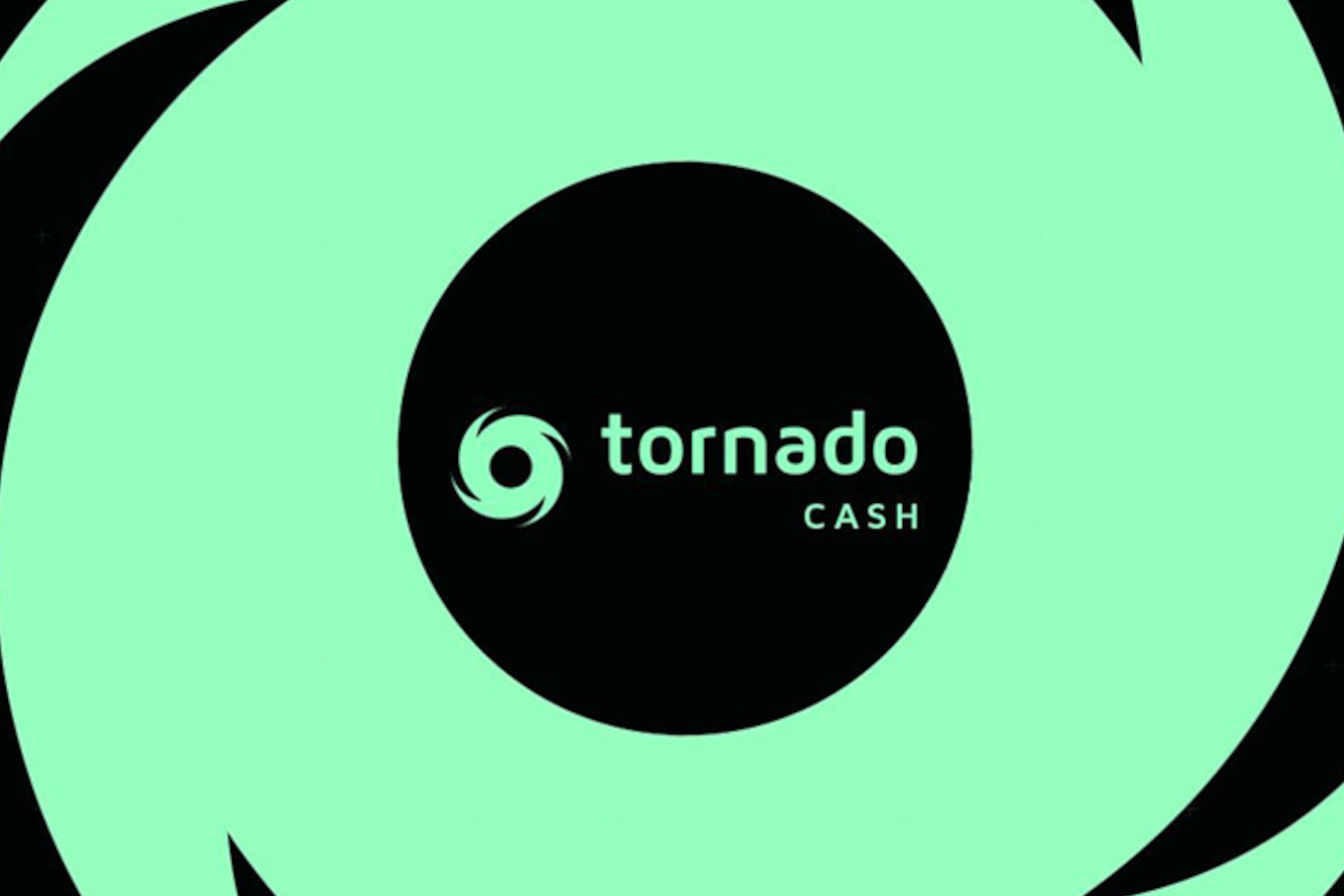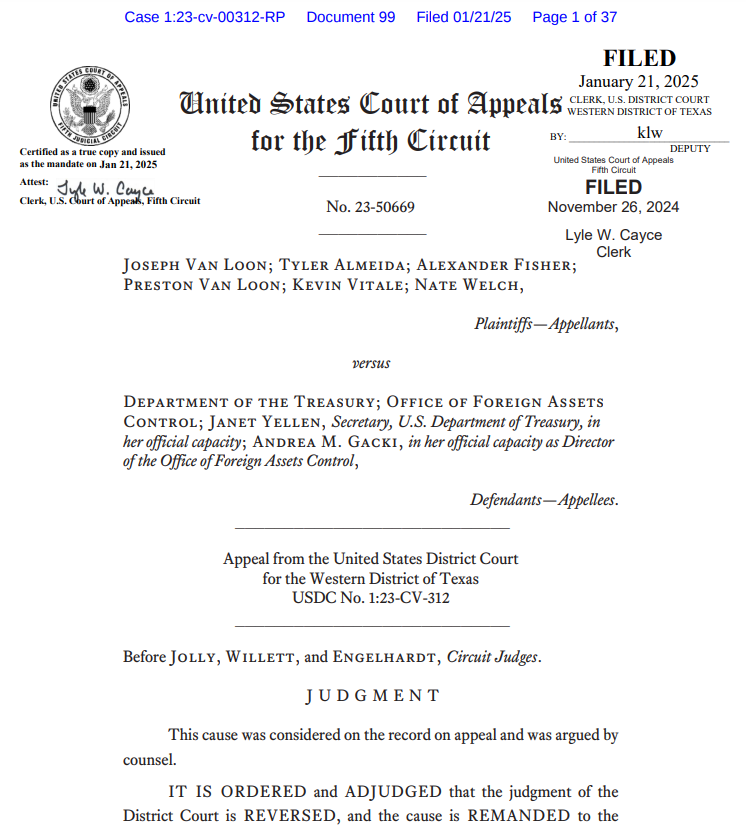2025-01-23

On January 21, 2025, in a landmark
decision, the U.S. District Court for the Western District of Texas has
overturned sanctions imposed by the Treasury’s Office of Foreign Assets
Control (OFAC) on the cryptocurrency mixing protocol Tornado Cash
since August 2022.
The court's decision comes after an
appeal by Tornado Cash users, which highlighted alleged overreach by the Office
of Foreign Assets Control (OFAC) under the U.S. Treasury Department.
The revocation of sanctions triggered a
surge in the value of Tornado Cash’s native token, TORN.
Data from CoinMarketCap revealed that
TORN's price skyrocketed by over 100% following the ruling, trading at $16.71.
The trading volume of the token also surged by an extraordinary 5,500%, exceeding $8 million in 24 hours.

Background on Sanctions and Court
Ruling
The sanctions, introduced by OFAC in
2022, accused Tornado Cash of facilitating over $455 million in cryptocurrency
laundering for North Korea's Lazarus Group, along with other cybercriminal
activities.
OFAC cited that over $7 billion had
passed through the protocol since its inception in 2019, with approximately 30%
of the funds linked to illegal activities.
However, the court ruled that OFAC
exceeded its statutory authority by sanctioning Tornado Cash.
The U.S. Fifth Circuit Court of Appeals
in New Orleans argued in November 2023 that smart contracts, a central
component of Tornado Cash, could not be considered property under the
International Emergency Economic Powers Act (IEEPA).
The three-judge panel concluded that
blacklisting the entire protocol rather than targeting individual bad actors
was unjustified.
Paul Grewal, Chief Legal Officer of
Coinbase, applauded the decision, stating that lifting sanctions would allow
U.S. crypto users to utilize Tornado Cash's privacy tools.
He further criticized OFAC's approach,
emphasizing the importance of protecting open-source technology and
privacy-preserving software.
Mixed Reactions Within the Crypto
Community
The ruling has been celebrated within
the crypto community as a victory for decentralized finance and privacy
advocates.
Crypto trader Ash Crypto speculated
that the decision reflects a pro-crypto stance under the Trump administration,
which has promised looser regulations for the industry.
Industry experts, including AlephZero
President Matthew Niemerg, stressed that compliant privacy-preserving software
would be critical for future protocols. However, concerns persist over the
potential misuse of such tools by malicious actors.
Tornado Cash Developer Remains in
Custody
The sanctions led to the arrest of
Tornado Cash developer Alexey Pertsev.
He was found guilty of money
laundering by Dutch judges at the s-Hertogenbosch Court of Appeal on May 14,
2024.
Pertsev was sentenced to five years and
four months in prison for laundering $1.2 billion in illicit assets through Tornado
Cash.
Despite the legal victory for Tornado
Cash users, its developer Alexey Pertsev remains in custody.
Pertsev, who was arrested by Dutch
authorities in 2022, was sentenced to five and a half years in prison for
laundering over $1.2 billion using the protocol.
Prosecutors argued that Pertsev failed
to prevent illicit use of the platform, while his defense maintained that he
had no control over user activities.
The court's decision marks a pivotal
moment in the battle between regulators and privacy-focused crypto projects.
While the lifting of sanctions has reinvigorated Tornado Cash’s community,
questions remain about how governments can balance the need for financial
privacy with preventing illicit activity.
The crypto world now waits to see how
this ruling shapes the future of regulation and innovation in the sector.